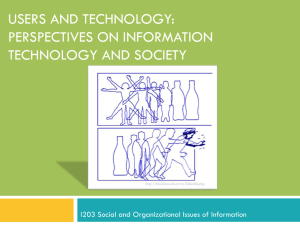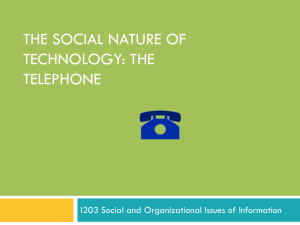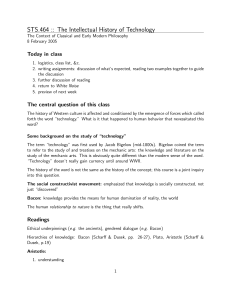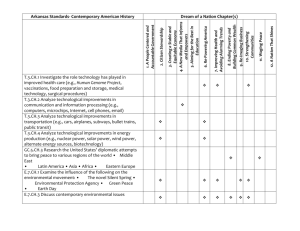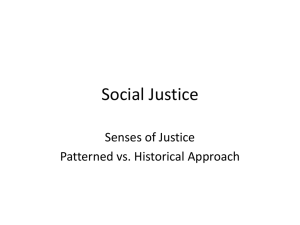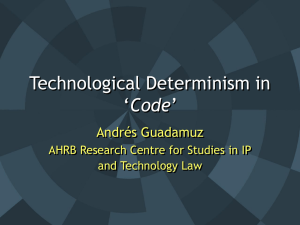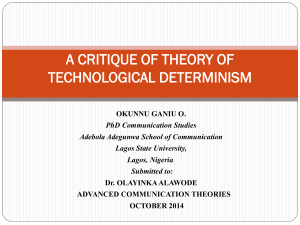The Social Nature of Technology
advertisement
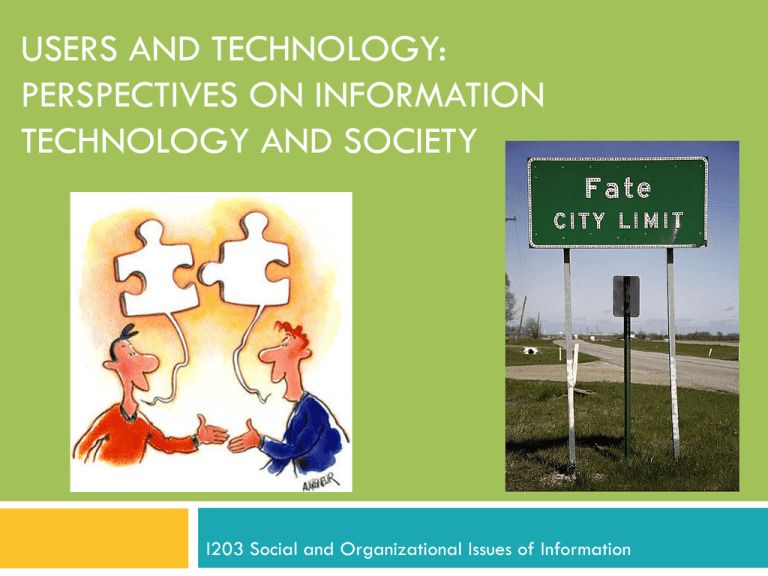
USERS AND TECHNOLOGY: PERSPECTIVES ON INFORMATION TECHNOLOGY AND SOCIETY I203 Social and Organizational Issues of Information Some theories for technological development and change Technological Determinism Social Constructivism 2 Related but Distinct PERSPECTIVES ON DEVELOPMENT & CHANGE Technological Social Determinism Constructivism THEORIES OF KNOWLEDGE / EPISTEMOLOGY Positivism / Subjectivism / Empiricism Post - Modernism 3 Does society determine technologies, or do technologies determine society? The ‘Star Trek’ problem: 4 But Seriously… The problem we face is very real in our understanding of technology and information history: Does technology/IT primarily affect society and happen as natural course of development, or are technologies/IT emergent from social processes? Put differently, do technologies develop “under their own immanent logic”? 5 Technological determinism Technological change comes from outside society as part of an autonomous scientific development Technologies have their own inertia, totally separate from the influences of people. At the extreme, technology causes social change 6 Examples of Determinism Lynn White “The history of the use of the horse in battle is divided into three periods: first, The invention of the stirrup that of the charioteer; second, that of the mounted warrior who clings to his led to Feudalism. steed by pressure of the knees; and See: White, L. Medieval Technology and third, that of the rider equipped with Social Change. Oxford: Clarendon stirrups.” Press, 1962. 7 More Examples of Determinism The automobile created suburbia. See: McShane, C. Down the Asphalt Path: The Automobile and the American City. New York, NY: Columbia University Press. 1995. 8 Consequences of Technological Determinism At the Macro level, technology causes social and historical changes. At the Micro level, technology affects social and social-psychological processes as individuals use technology and tools. 9 Critiques of Tech Determinism “Technologies do no doubt, as Richard Sclove (1995) puts it, 'constitute part of a society's core political infrastructure', just as do laws regulating behavior and taxation, but I think it's worth making the point that they are not likely to be any more predictable in their effects than those.” “…but notice that technologies tend to do this independently of their nominally intended (or 'focal') purposes. We do not normally regard fountains, pipes (or, for that matter, microwave ovens, hypodermic syringes, garden hoses or numerically controlled machine tools) as devices that shape patterns of human relationship, but that is nevertheless one of their pervasive latent (or 'nonfocal') tendencies” Sclove (1995 : 89) 11 The Social Construction of Technology (SCOT) Perspective 12 Understanding the Social Construction of Technology Both technical processes and social processes shape technological development. Thus, what we think of as ‘technology’ is produced through many factors, including: Behaviors of individuals and groups Economy and markets Consumer needs and wants 13 Main arguments of SCOT Technology can develop differently based on the social circumstances in a given environment. Concept of “interpretive flexibility”: any object can mean different things to different relevant groups. 14 Interpretive Flexibility 15 Main arguments of SCOT (continued) Stabilization Over time, negotiations lead to convergence. Closure Closure is a social process in which the technological artifact reaches a final, consensual form. 16
